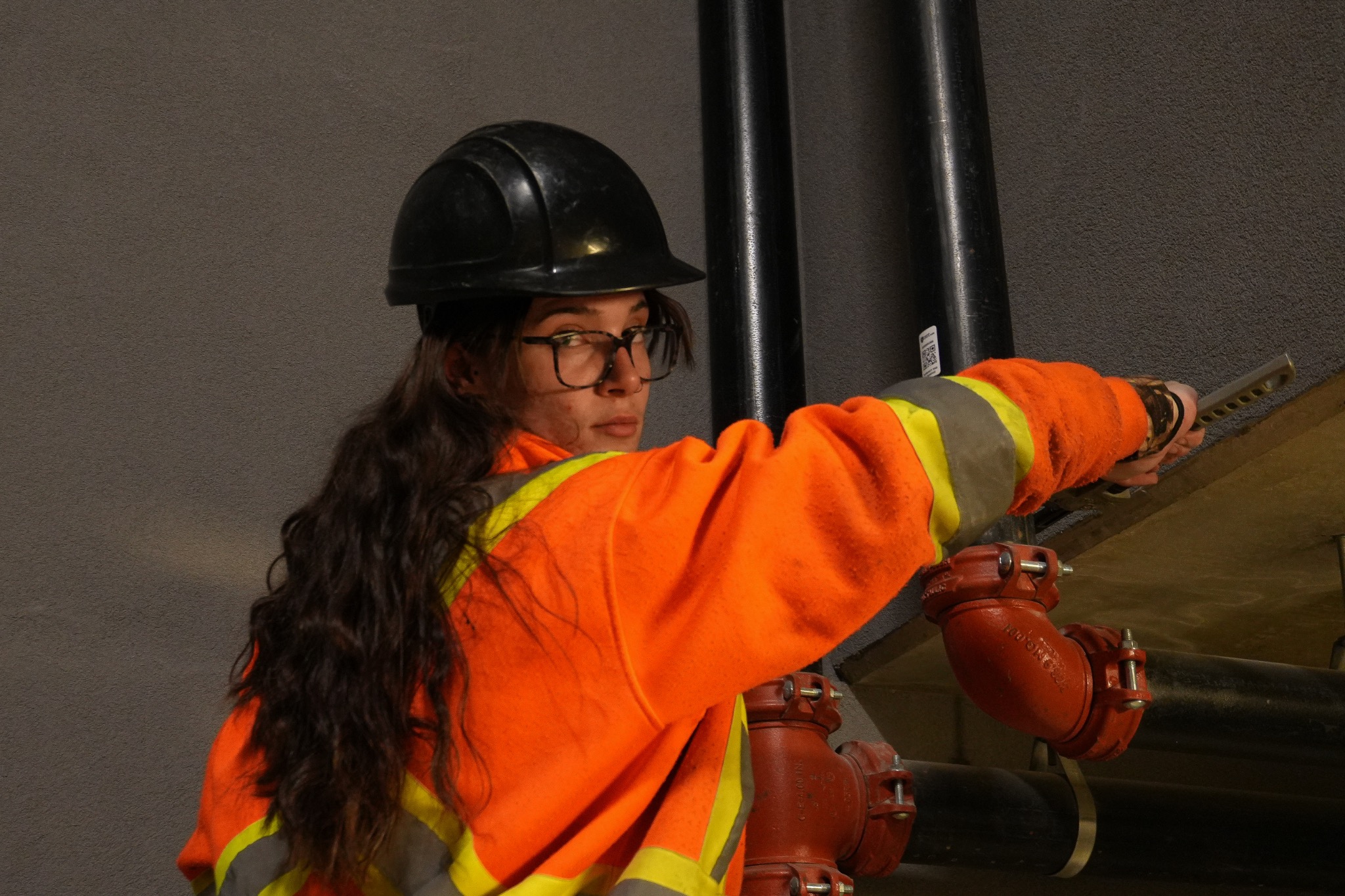
The dirty open secrets of the trades
Part one of a two-story series.
Substance abuse holds many hostages in the trades. SAIT students aren’t immune to these issues.
Now, some want to see changes happen in the industry.
“I have had to use naloxone three or four times now, because someone overdosed on an opioid,” said Hadyn Bernard.
Benard is a SAIT student, studying for his red seal in the pipe trades. He said he’s seen all sorts of drugs and alcohol being consumed on worksites and in school. He’s heard or seen people using speed, weed, cocaine, crack and fentanyl.
“It is scarring because you have to get a heavy dude to hold the druggie down before he punches or stabs you before he wakes,” said Benard about having to use a naloxone kit.
Payton Baxter sat next to Bernard. She chirped, saying that having people under the influence can be a safety issue on worksites. With the heavy machinery found at construction sites, people under the influence could cause injuries to themselves and others.
According to the Canadian government, men in the trades experience the highest rates of opioid overdose. Since 2016, three out of four opioid deaths have come from males. 30 to 50 per cent of deaths from opioids came from men in the trades.
The Canadian government gave three reasons why men in the trades may abuse drugs.
Trade work is very physically demanding, causing workers to use drugs to relax. Trade workers might self-medicate with drugs to cope with injury or pain caused by their work site and lastly, men often do not talk about drug use because of societal expectations they feel are present in their workplace.
Benard now carries two or three kits of naloxone.
“Because it literally cannot kill you. All it can do is save your life, so having two is better than having one and having three is better than two,” said Benard.
Finding help
Both Benard and Baxter said drug use is widespread, but getting help for your addiction can be difficult.
“I think it would depend on your employer; some of them would be understanding and give you the time you needed. Some of them don’t have time for it. It's kind of just the businesses; they don’t have to be there for you,” said Brandon Clow.
Clow is a first-year electrical student.
Baxter felt that if she needed to ask for help at her old job she would be fired. Because of this, she thinks that people hid their addictions to keep their jobs.
“They don’t want, (people), to think they are a druggie, they don’t want to be seen going to AA, so many more stigmatisms just on that, because they don’t want anybody to know,” said Baxter.
Benard feels that for his company, Great Northern Plumbing, outreach for help is good.
“There’s been a couple of stories I've heard of guys who’ve needed alcoholism help. And my company has been like, we’re not going to fire you, we're going to try and get you help,” Benard said.
Benard said that the company only has a one try policy. If you were to relapse back, you would be fired. Benard said that most companies wouldn’t help workers with their addiction.
Benard and Baxter felt that smaller companies offer better help than larger ones. Saying that smaller companies are more personal. In their experience, the management is more understanding and wants to provide help to their employees.
Post a comment